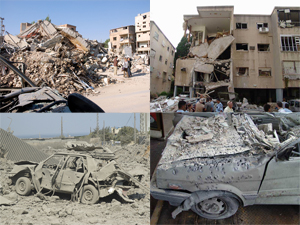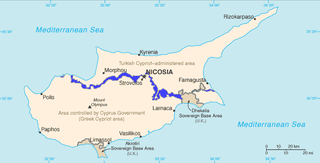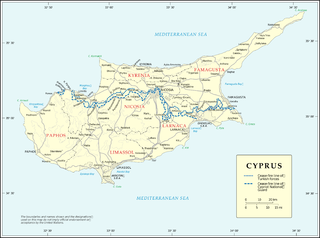
Kofi Atta Annan was a Ghanaian diplomat who served as the seventh secretary-general of the United Nations from 1997 to 2006. Annan and the UN were the co-recipients of the 2001 Nobel Peace Prize. He was the founder and chairman of the Kofi Annan Foundation, as well as chairman of The Elders, an international organisation founded by Nelson Mandela.

United Nations Security Council Resolution 1706, adopted on August 31, 2006, after recalling previous resolutions on the situation in Sudan, including resolutions 1556 (2004), 1564 (2005), 1574 (2004), 1590 (2004), 1591 (2005), 1593 (2004), 1663 (2006), 1665 (2006) and 1679 (2006), the Council expanded the mandate of the United Nations Mission in the Sudan (UNMIS) to include deployments in Darfur to enforce the Darfur Peace Agreement.
The Report of the Panel on United Nations Peace Operations (2000) is commonly called the Brahimi Report, named for the chairman of the commission that produced it, Lakhdar Brahimi. UN Secretary-General Kofi Annan had convened the Panel on March 7, 2000, ahead of the upcoming Millennium Summit, and had tasked it with making a thorough review of United Nations peace and security activities and recommending improvements. The report was published on August 17, 2000. In identical letters dated 21 August 2000 transmitting the report to the presidents of the UN General Assembly and the UN Security Council, Annan called the Panel's recommendations "essential to make the United Nations truly credible as a force for peace."

United Nations Security Council resolution 1096, adopted unanimously on 30 January 1997, after reaffirming all resolutions on Georgia, particularly Resolution 1065 (1996), the Council addressed the current situation extended the mandate of the United Nations Observer Mission in Georgia (UNOMIG) until 31 July 1997.

United Nations Security Council resolution 1250, adopted unanimously on 29 June 1999, after reaffirming all resolutions on the situation in Cyprus, particularly Resolution 1218 (1998), the Council addressed the Secretary-General Kofi Annan's mission of good offices in Cyprus.

United Nations Security Council resolution 1271 was adopted unanimously on 22 October 1999, after reaffirming all resolutions on the situation in the Central African Republic, including resolutions 1159 (1998), 1201 (1998) and 1230 (1999). The Council extended the mandate of the United Nations Mission in the Central African Republic (MINURCA) until 15 February 2000 with a view to its transition from a peacekeeping operation to a post-conflict peace-building presence.
United Nations Security Council resolution 1312, adopted unanimously on 31 July 2000, after reaffirming resolutions 1298 (1999) on the situation between Eritrea and Ethiopia, and 1308 (2000), the council established the United Nations Mission in Ethiopia and Eritrea (UNMEE) in anticipation of a peacekeeping operation subject to future authorisation.

United Nations Security Council resolution 1339, adopted unanimously on 31 January 2001, after reaffirming all resolutions on Abkhazia and Georgia, particularly Resolution 1311 (2000), the Council extended the mandate of the United Nations Observer Mission in Georgia (UNOMIG) until 31 July 2001.

United Nations Security Council resolution 1353, adopted unanimously on 13 June 2001, after recalling resolutions 1318 (2000) and 1327 (2000), the Council agreed on proposals to strengthen the relationship of the United Nations with troop-contributing countries and the Secretariat in peacekeeping operations.
United Nations Security Council resolution 1354, adopted unanimously on 15 June 2001, after reaffirming all resolutions on the situation in Cyprus, including Resolution 1251 (1999), the Council extended the mandate of the United Nations Peacekeeping Force in Cyprus (UNFICYP) for a further six months until 15 December 2001.

United Nations Security Council resolution 1366, adopted unanimously on 30 August 2001, after reaffirming resolutions 1196 (1998), 1197 (1998), 1208 (1998), 1265 (1999), 1296 (1999), 1318 (2000), 1325 (2000) and 1327 (2000) concerning aspects of armed conflict, the Council reiterated its aim to prevent armed conflict as part of its responsibility to maintain international peace and security.

United Nations Security Council resolution 1384, adopted unanimously on 14 December 2001, after reaffirming all resolutions on the situation in Cyprus, including Resolution 1251 (1999), the council renewed the mandate of the United Nations Peacekeeping Force in Cyprus (UNFICYP) for a further six months until 15 June 2002.

United Nations Security Council resolution 1442, adopted unanimously on 25 November 2002, after reaffirming all resolutions on the situation in Cyprus, particularly Resolution 1251 (1999), the council extended the mandate of the United Nations Peacekeeping Force in Cyprus (UNFICYP) for an additional six months until 15 June 2003.

United Nations Security Council resolution 1486, adopted unanimously on 11 June 2003, after reaffirming all resolutions on the situation in Cyprus, particularly Resolution 1251 (1999), the council extended the mandate of the United Nations Peacekeeping Force in Cyprus (UNFICYP) for an additional six months until 15 December 2003.

United Nations Security Council resolution 1491, adopted unanimously on 11 July 2003, after recalling resolutions 1031 (1995), 1088 (1996) and 1423 (2002) on the conflicts in the former Yugoslavia, the Council extended the mandate of the Stabilisation Force (SFOR) in Bosnia and Herzegovina for a further period of twelve months.

The United Nations Security Council resolution 1517 was adopted unanimously on 24 November 2003, after reaffirming all resolutions on the situation in Cyprus, particularly Resolution 1251 (1999), the council extended the mandate of the United Nations Peacekeeping Force in Cyprus (UNFICYP) for an additional six months until 15 June 2004.

United Nations Security Council resolution 1525, adopted unanimously on 30 January 2004, after recalling previous resolutions on Israel and Lebanon, including resolutions 425 (1978), 426 (1978) and 1496 (2003), the council extended the mandate of the United Nations Interim Force in Lebanon (UNIFIL) for a further six months until 31 July 2004.

Under United Nations Security Council resolution 1548, adopted unanimously on 11 June 2004, after reaffirming all resolutions on the situation in Cyprus, particularly Resolution 1251 (1999), the council extended the mandate of the United Nations Peacekeeping Force in Cyprus (UNFICYP) for an additional six months until 15 December 2004.

United Nations Security Council resolution 1639, adopted unanimously on 21 November 2005, after recalling previous resolutions on the conflicts in the former Yugoslavia, including resolutions 1031 (1995), 1088 (1996), 1423 (2002), 1491 (2003), 1551 (2004) and 1575 (2004), the Council extended the mandate of EUFOR Althea in Bosnia and Herzegovina as a legal successor to the Stabilisation Force (SFOR) for a further twelve months.

United Nations Security Council Resolution 1728, adopted unanimously on December 15, 2006, after reaffirming all resolutions on the situation in Cyprus, particularly Resolution 1251 (1999), the Council extended the mandate of the United Nations Peacekeeping Force in Cyprus (UNFICYP) for six months until June 15, 2007.

















